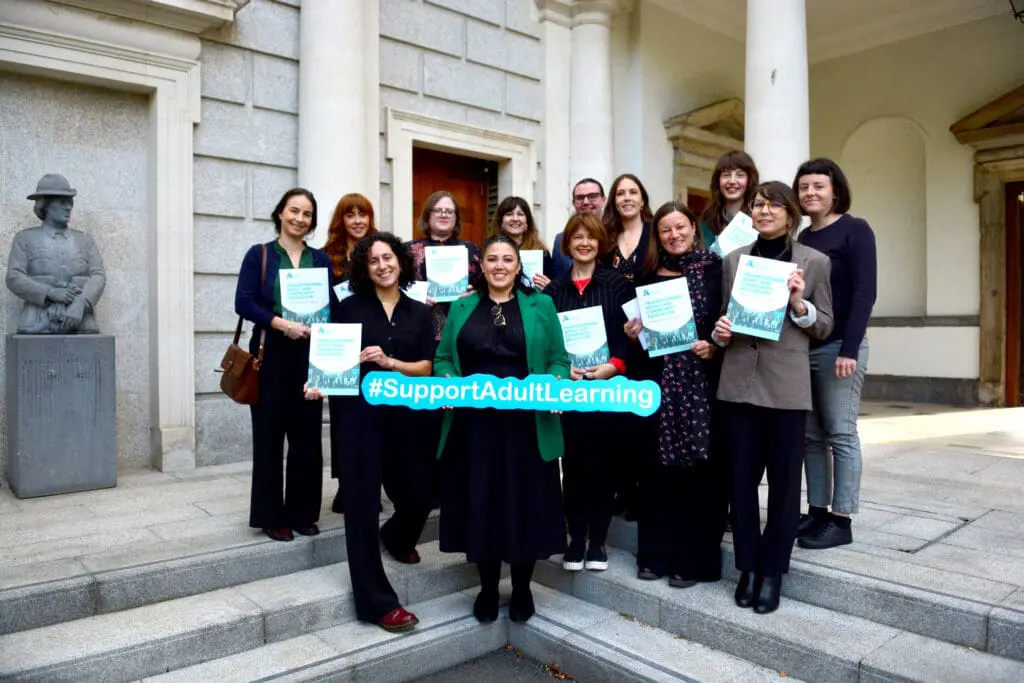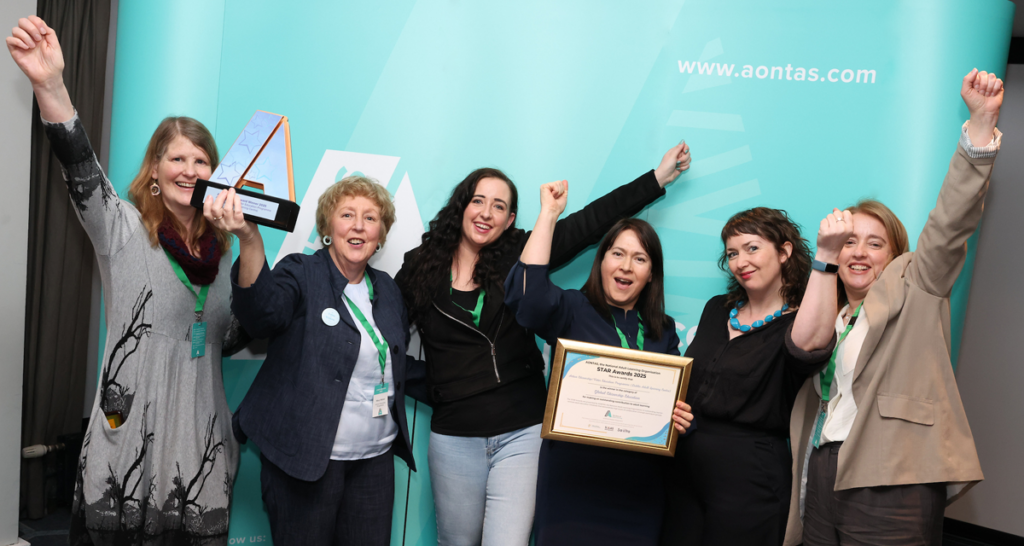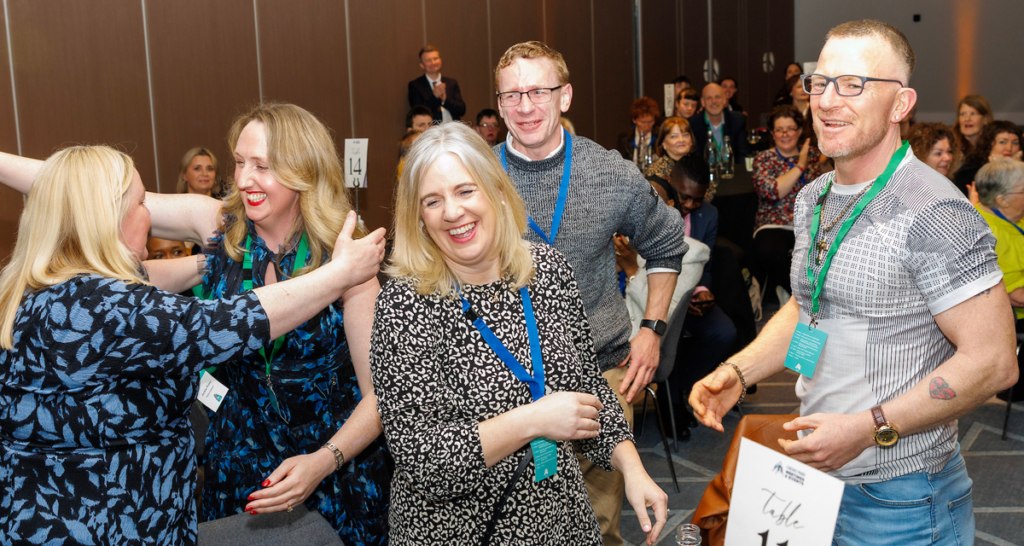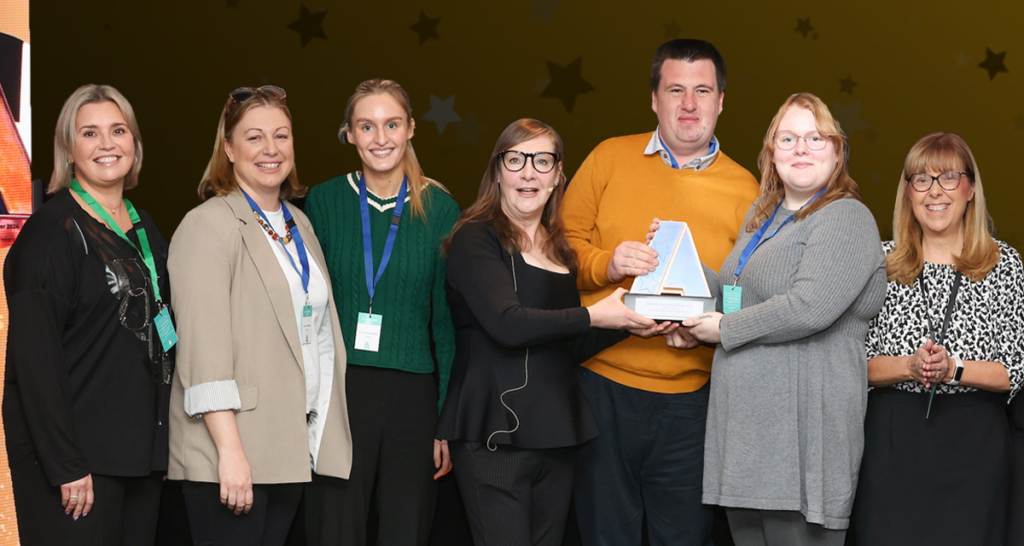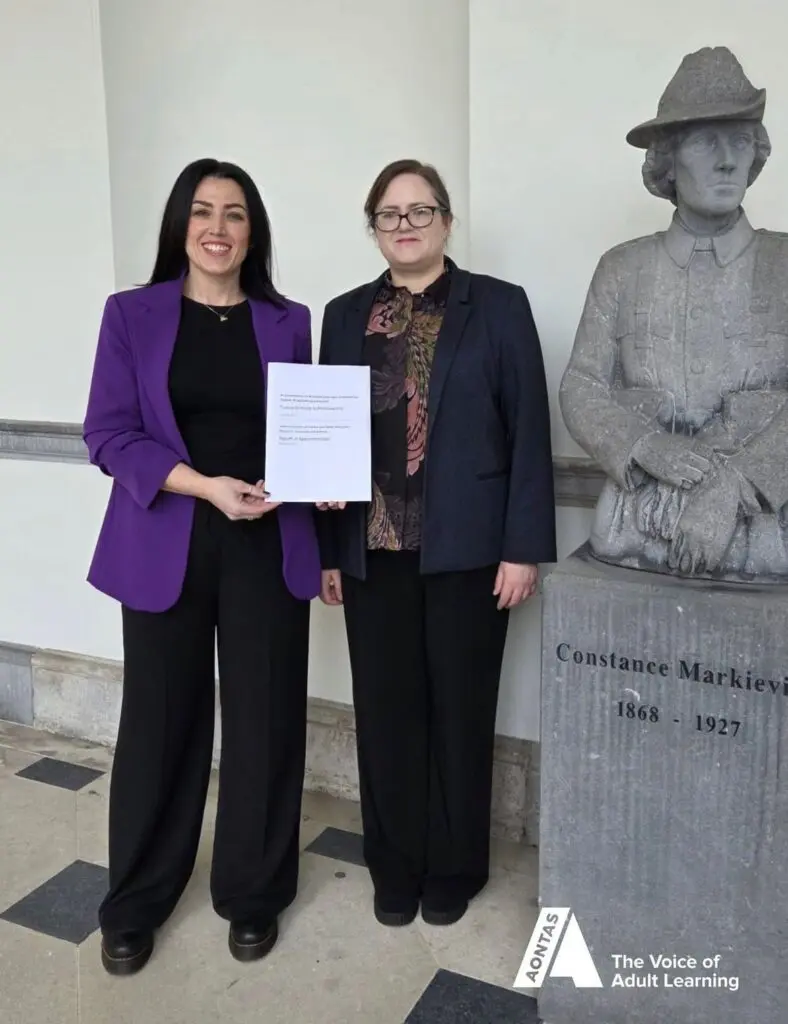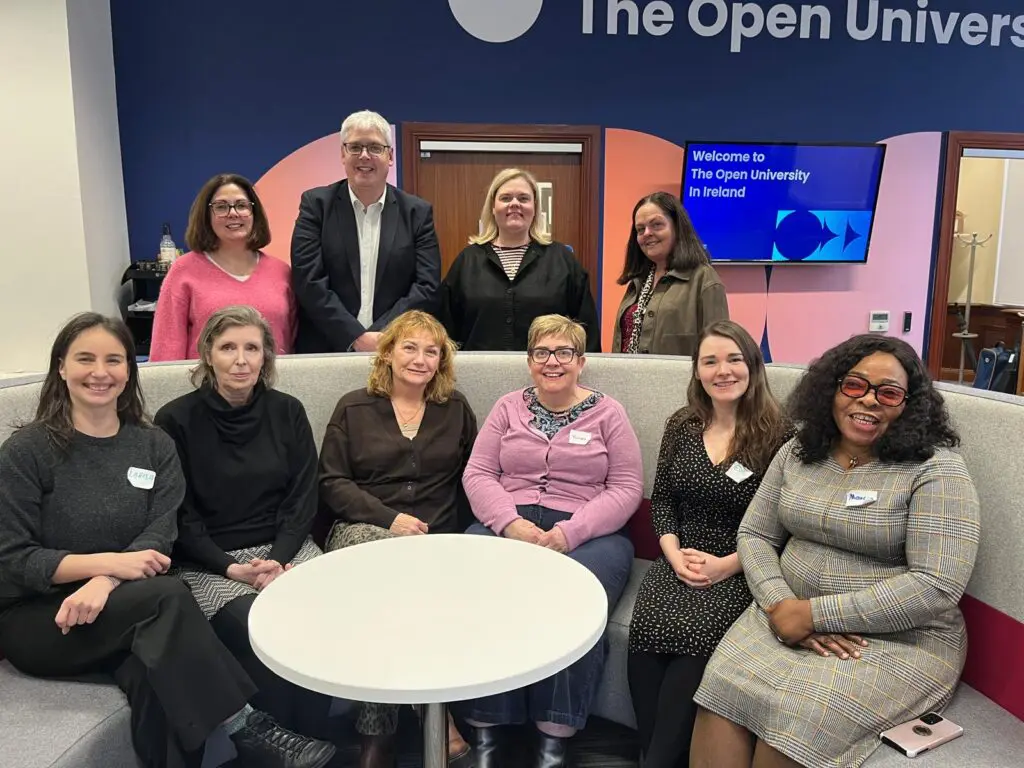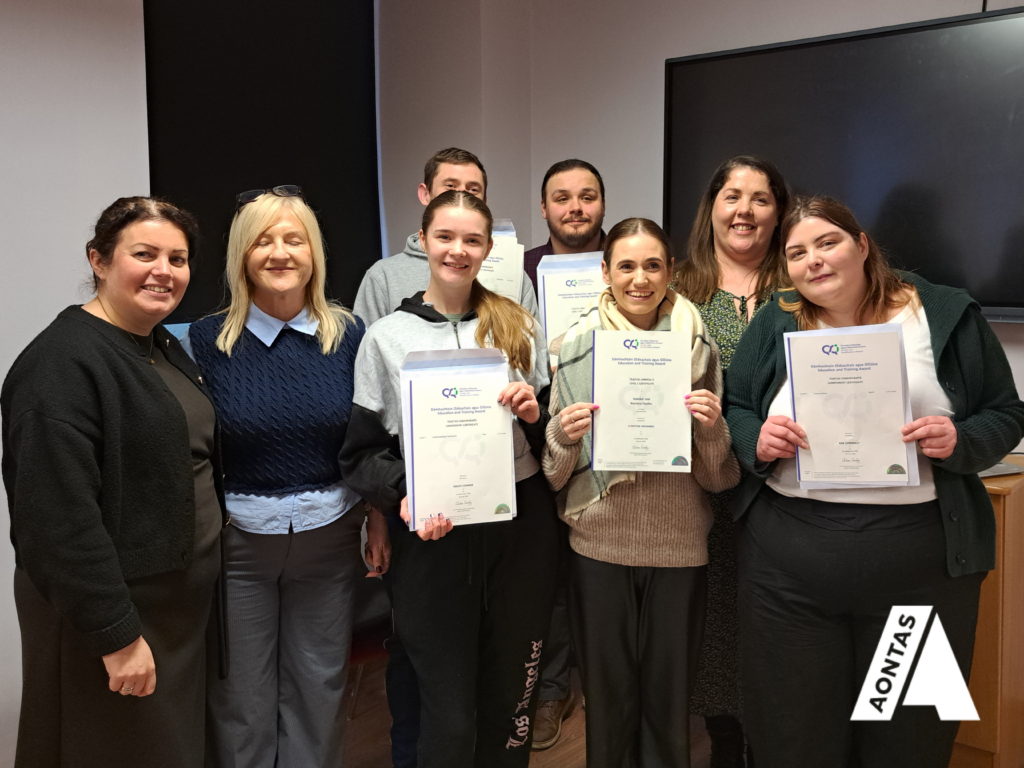This is especially important those who have been let down by the traditional education system, and for people from underresourced or marginalised communities.
Speaking at the launch, our CEO Dearbháil Lawless stated:
“There are urgent challenges in our society. Education is not just about the economy. It’s about enabling people to live happy and fulfilled lives, in safe and cohesive communities. Adult education is the policy solution Government is looking for.”
Budget 2025 saw the announcement by Patrick O’Donovan TD, Minister for Further and Higher Education, Research, Innovation, and Science, that €20 million will be directed towards “a skills package in employment-focused skills and training, with a particular focus on assisting small, medium and micro companies.”
But the focus on skills development is only part of the picture. We need dedicated funding for both accredited and non-accredited adult and community education programmes, which prioritise people whose basic needs must be met in order to take that step into education – or indeed to be able to stay in education.
“People need the right foundations to make it realistic for them to engage in education,” Dearbháil said. “Barriers are still holding people back, including a lack of accessible and affordable childcare – which disproportionately affects women and their right to access education – and a lack of reliable and frequent public transport especially in rural areas.”
The myriad barriers to learning were the focus of our recent national campaign, “Holding You Back”, which featured on RTÉ News, and was supported by actor and writer Emmet Kirwan.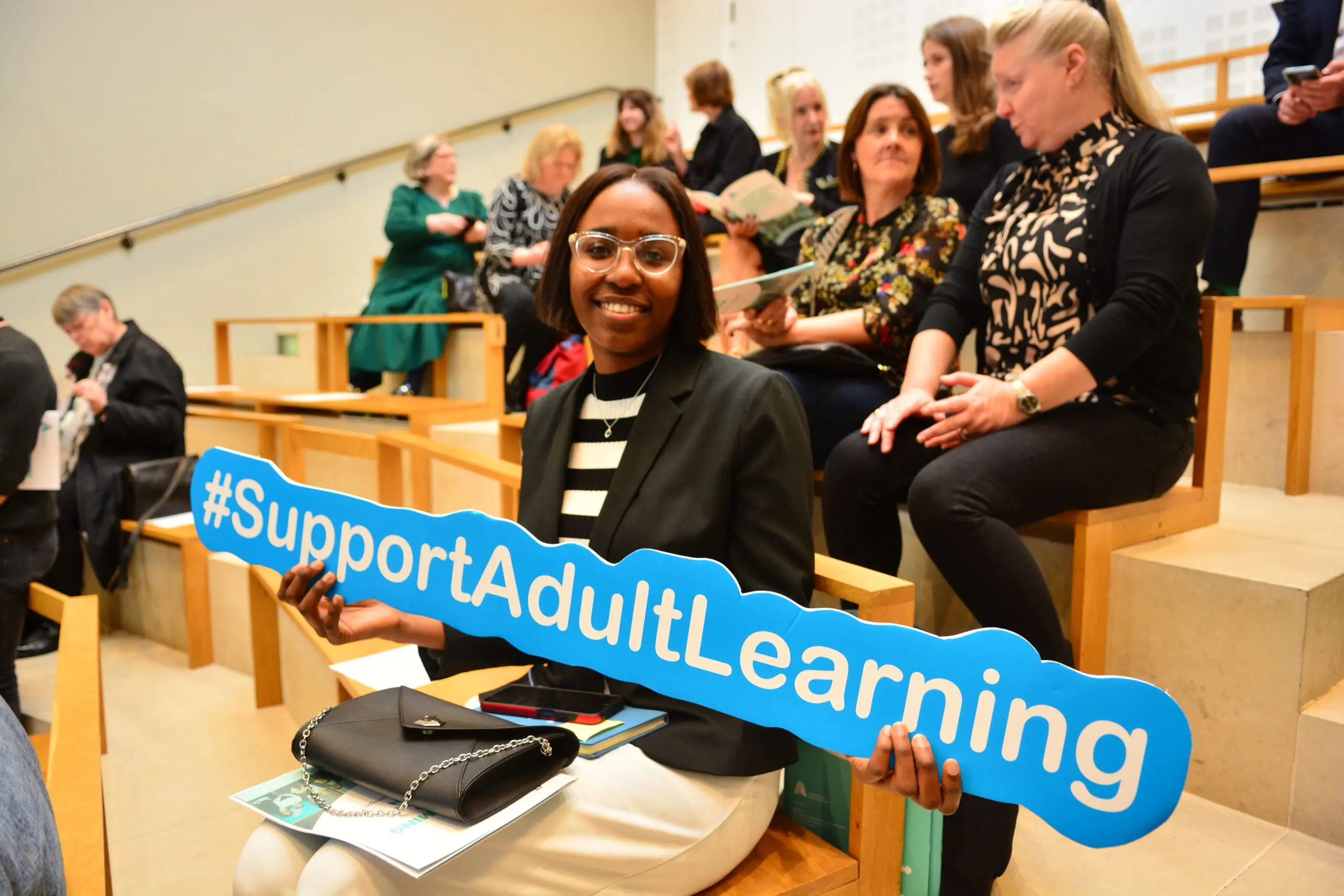
One such barrier is the lack public transport. This is a priority for one of the three adult learners speaking at the launch – Blessing Chidiogo Ebeledike from Co. Tipperary.
“Where I attend my course in Carrick-on-Suir, the buses are so infrequent going to rural areas that I often have to wait in town for four or five hours for the next bus, or take a taxi, which costs a fortune,” Blessing said. She is a member of the FET Student Council as part of Tipperary ETB, which raises students’ perspectives with decisionmakers both locally and nationally.
In addition to the need for a public model of childcare and more guidance counsellors for students, Blessing said: “The Government needs to invest in reliable and frequent public transport for people in rural communities. We suggest the Government collaborate with TFI (Transport for Ireland) on the Local Link. It would benefit the whole community.”
The manifesto launch was an opportunity to further emphasise these barriers and share our members’ policy change asks with political representatives.
It was open to all parties, and was supported by Mairéad Farrell TD, Sinn Féin Spokesperson on Further and Higher Education, Innovation, and Science.
Speaking at the event, Deputy Farrell said:
“It was brilliant today to hear from people who are participating in different programmes and to hear about the different barriers in terms of access to education. There are a myriad of different factors that prevent people from being able to access education. We need to make sure we are listening and talking to people about how we can help them. We have to make sure we’re dealing with these barriers.”
Ailish Dunne, who was a spokesperson for our Holding You Back campaign, also spoke about the need for greater support for people with disabilities. Ailish, who is blind, wants to progress in her education and study psychology at university.
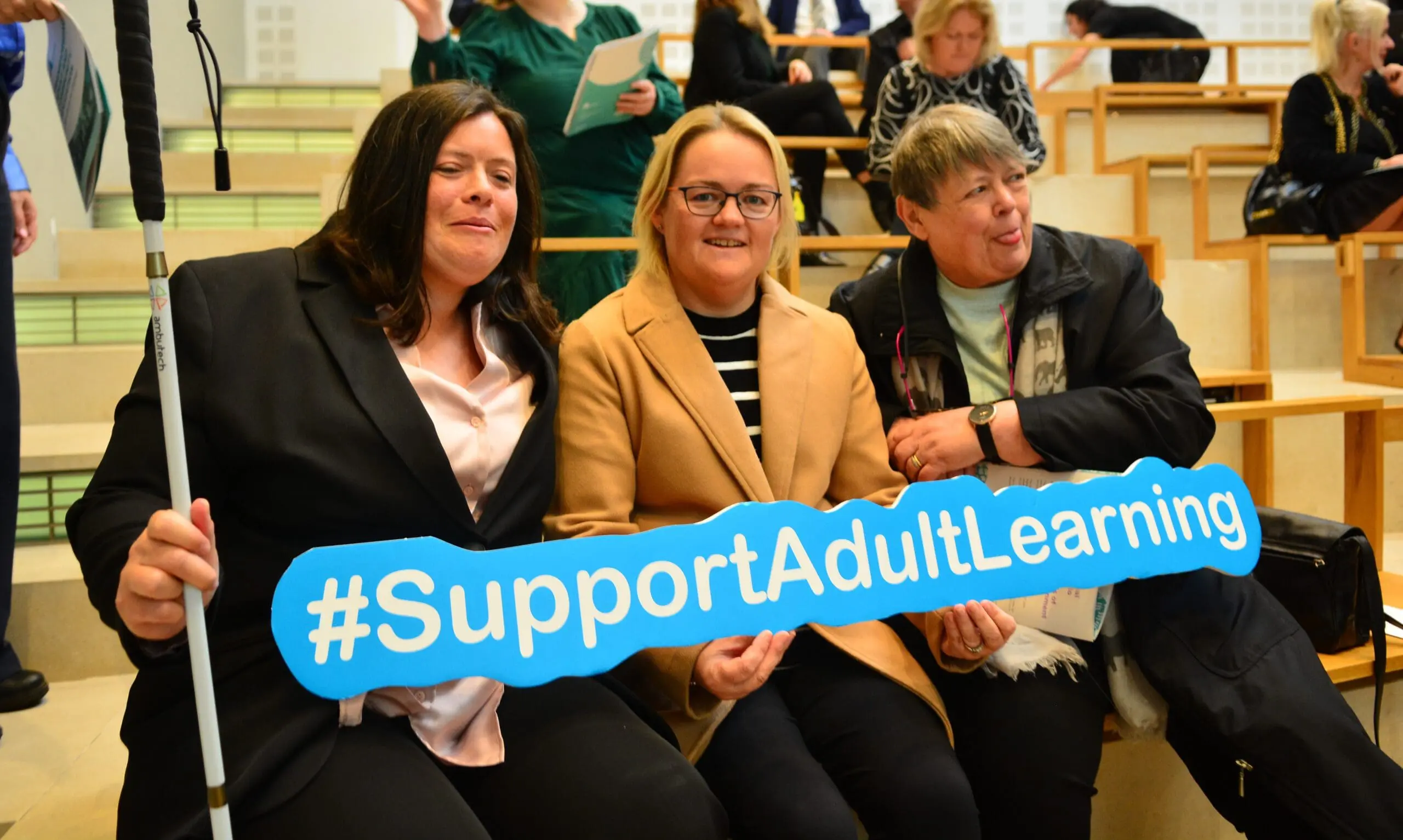
Ailish said the €12 increase in social welfare in Budget 2025 was welcome, but it wouldn’t cover the cost of her transport to and from a course, especially as some living in a rural area in Co. Laois. And, when it comes to financial support, she is stuck between a rock and a hard place because if she undertakes work to earn money in addition to her disability payments, her payments are docked. She says this model is prohibitive, especially for someone who wants to work.
We also heard from David Rigney, who previously participated on an AONTAS Learners as Leaders programme and has spoken at other AONTAS events. David shared about the importance of adult and community education for giving people a chance at learning who had negative experiences at school, particularly with corporal punishment. David said our education system must incorporate a Universal Design Model, so that everyone has the opportunity to learn in a way that suits them.
We also heard from Martina Hourigan of Roscommon Women’s Network, and Pamela Latimer from Longford Women’s Link, who is also on the AONTAS Board. They spoke about a number of issues that continue to face the adult and community education sector, which could be resolved if the Government heed the advice in AONTAS’ manifesto.
This includes the administrative burden on education providers, with the requirements and paperwork for funding provision being equal to much larger organisations with greater resources. Many educators also work without permanent contracts, and many leave the sector due to the precarity of the work.
With this manifesto, we at AONTAS are calling for a new vision of how adult and community education is recognised and funded as a core part of our education system.
“There have been great strides from Government and policymakers in creating an education system that is more flexible and inclusive,” Dearbháil said. “However, people are still being left behind. The Government must act to make our education system equitable by prioritising those furthest behind first. An investment in adult and community education is an investment in the health and future of our country.”
Read the manifesto and find out more: aontas.com/campaigns/policy-asks/
